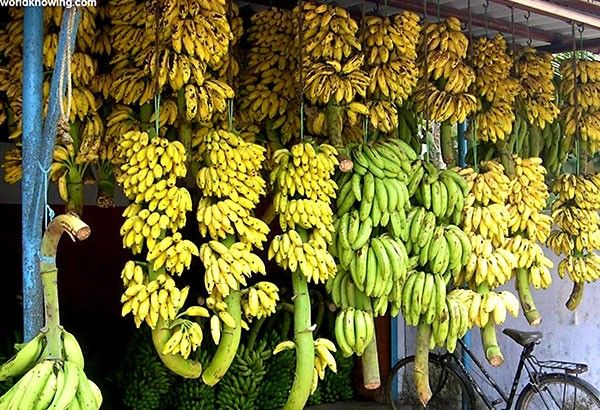Banana industry losing global edge

MANILA, Philippines - Amid rebel attacks and lack of government support, banana stakeholders said the billion-dollar local industry is losing its competitive edge as it slips in rank among the largest banana exporting countries globally.
The Pilipino Banana Growers and Exporters Association (PBGEA) said the comparative advantage and competitiveness of the Philippines in banana production are slowly eroding.
Based on a recent United Nations Conference on Trade and Development report, Costa Rica has overtaken the Philippines as the number two largest banana exporting country.
The Philippines used to be the second largest producer of bananas worldwide, next to Ecuador, which supplies 95 percent of the total banana demand in the Asian market.
Reports showed that the country’s export earnings from banana plummeted to $440 million last year from the $1.1 billion recorded in 2014.
PBGEA said the decline is combined effects of natural calamities, local ordinances that retards industry growth as well as lack of direction and commitment at the national level.
The recently ended El Niño phenomenon that hit Mindanao has also resulted to approximately 20 percent decline in production.
“The exorbitant import costs for the fruit and unfavorable tariff rates have motivated importers to look elsewhere for cheaper alternative sources. Reason is the type of banana the Philippines is cultivating slaps foreign buyers hefty import duties of the value of goods,” PBGEA executive director Stephen Antig.
Furthermore, banana stakeholders have called on the government for its intervention on agribusiness ventures arrangements (AVAs) which may hamper the expansion of banana plantations.
AVAs are agreements between private investors in banana plantations and agrarian reform beneficiaries (ARBs).
Stakeholders said government policy and consistency play a vital role in the stability of supply of banana and strategic direction of investors who are contemplating to invest in large-scale banana farming.
“The Department of Agrarian Reform is reviewing existing AVAs, also known as leaseback agreements. They (stakeholders) are worried government interference with live contract provides disincentives to local and foreign investors, let alone unconstitutional. This interference has changed the strategic direction of local corporate farms in relations to their expansion plans,” Antig said.
He added other competing Asian countries are offering more attractive returns on investment, tariff cuts, income tax holidays, and other incentives.
“Big corporate farms are currently scoping for plantations in Vietnam, Cambodia, Laos and as far as Latin America where investment policies are oftentimes friendlier than the Philippines,” he said.
- Latest
- Trending






























